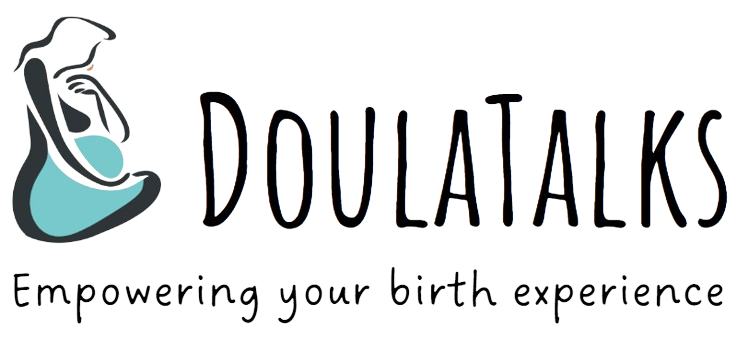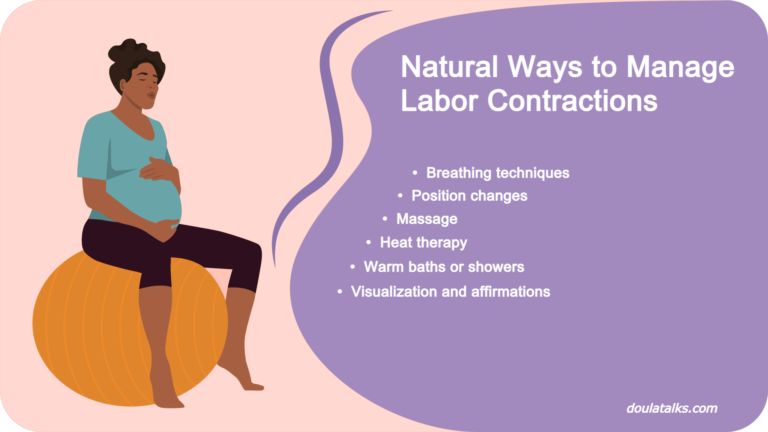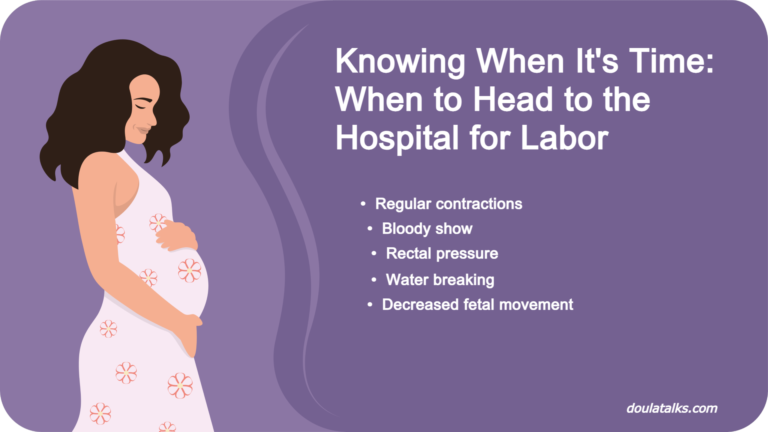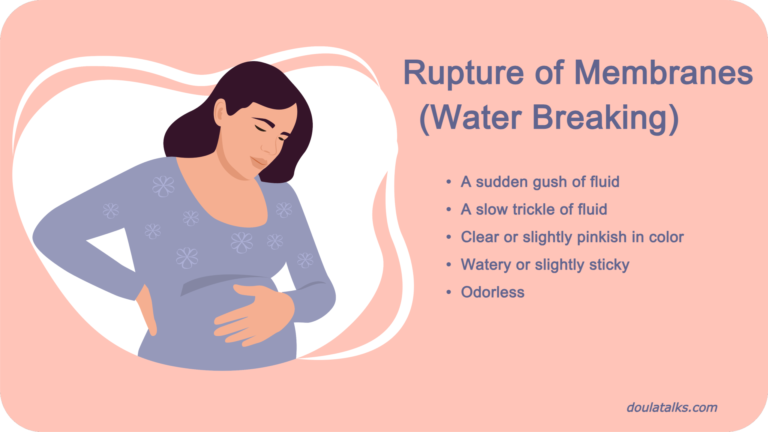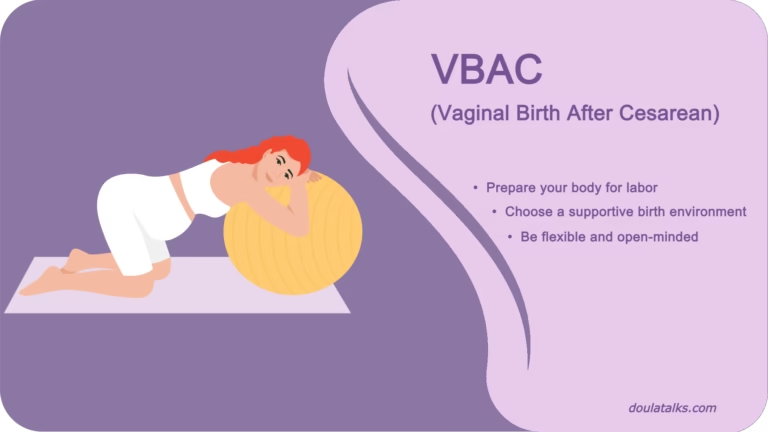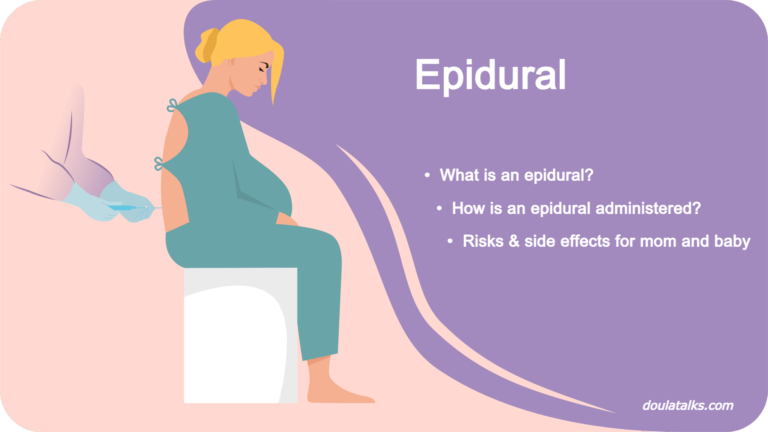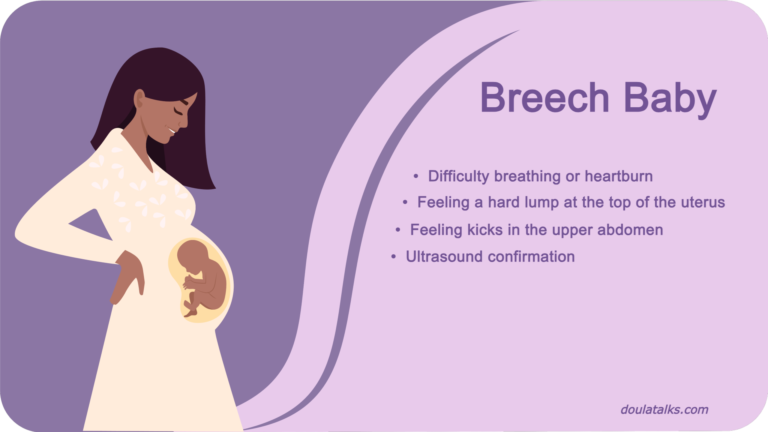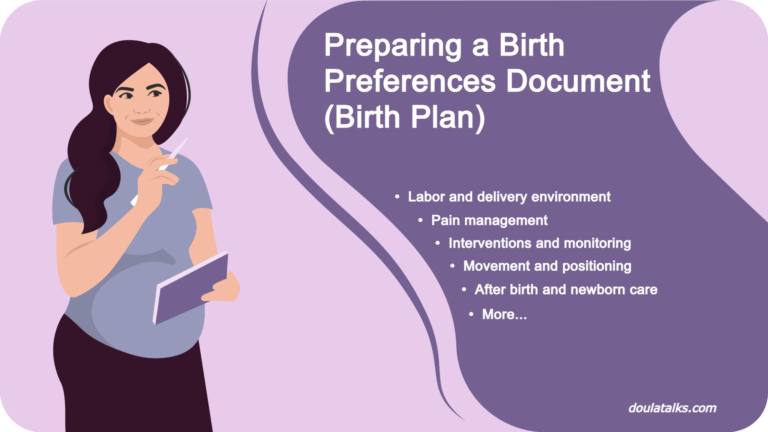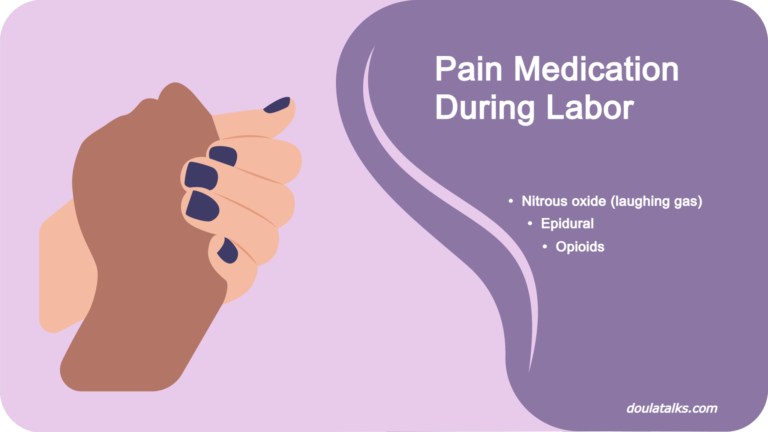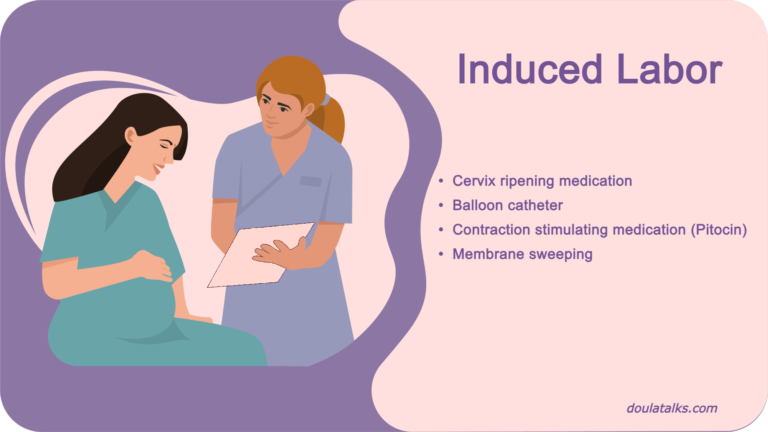I’m a Doula: This Is What a Doula Does
Choosing to be a doula is not a career decision. It is a calling. Being there for women when they are doing the most primal and basic of things — bringing another human being into the world — is definitely not a “day job.”
By Liat Salomon, doula
February 27, 2024
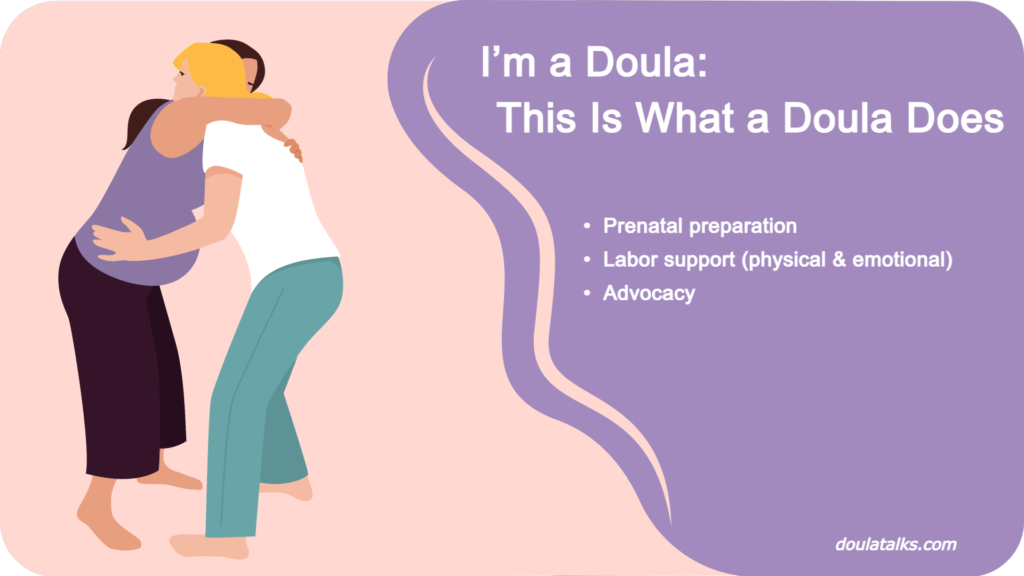
In This Article:
I can’t say that being a doula was my childhood dream — primarily because I never heard of a doula growing up. All the birth stories I heard had the words “hospital”, “doctor”, and “pain” in them. Never anything else.
I can’t even say that it was my dream career when I was in my twenties: I worked as a journalist/news editor and loved it.
But then life happened, as it usually does.
The birth of my first child was wonderful. Really. It wasn’t easy, but I felt so great after, so when I went in to give birth the second time, I had no doubt it would be the same.
Except it was not.
Looking back on both births, I realized that the key difference was that I didn’t have Valerie with me the second time. Valerie was who I kept looking for to help me go through contractions. I was looking for her massages, her confidence, and guidance — and basically just knowing she was there.
It took me nearly three years before I realized that what I wanted to do was “become Valerie.”
So what IS a doula?
A doula is a Greek word meaning “a woman who serves.” Today, the word doula refers to someone, usually a woman, who supports a person (and their partner) giving birth.
The support includes physical, emotional, and mental support before and during labor.
Also Read:
What services does a doula provide?
Not all doulas offer the same service packages but, generally speaking, doulas provide a range of services to support women and their partners during pregnancy, childbirth, and the postpartum period. Some of the services include:
Prenatal support
A doula can provide emotional and informational support during pregnancy, helping women and their partners prepare for childbirth, answering questions about pregnancy and childbirth, and providing guidance on birth preferences and options.
Labor support
During labor, a doula provides emotional and physical support to the mother and her partner. This can include providing massage, helping with relaxation and breathing techniques, suggesting different positions, and providing reassurance and encouragement.
Advocacy
A doula can help advocate for the mother’s wishes and preferences during childbirth, helping to ensure that the mother’s voice is heard and her needs are met. Personally, I feel that my job is to make sure that the birthing person and their partner advocate for themselves by encouraging them to ask A LOT of questions during pregnancy and during the birth — to make sure they always make the right decisions and that their “voice” is heard.
Postpartum support
Some doulas provide support to the mother and her partner in the postpartum period, such as helping with breastfeeding, providing emotional support, and assisting with newborn care.
Overall, doulas can help to create a more positive and empowering birth experience for everyone involved.
What are the advantages of having a doula?
Numerous studies have confirmed the advantages of having a doula present during childbirth. These studies have shown that having a doula can lead to a range of benefits for the mother, the baby, and the birth experience overall. Here are some examples of the findings:
Reduced risk of medical interventions
A study published in Birth: Issues in Perinatal Care found that having a doula present during childbirth was associated with a reduced risk of infant mortality and a higher likelihood of spontaneous vaginal delivery.
In addition, a Cochrane Review of 26 randomized controlled trials involving more than 15,000 women found that having a doula present during childbirth was associated with a reduced risk of C-section, shorter labors, and reduced use of pain medication.
Also, a study published in the Journal of Midwifery & Women’s Health found that women who received continuous labor support from a doula had a lower incidence of fetal distress and were less likely to have their labor augmented with synthetic oxytocin.
Shorter labors
Studies have shown that women who have the support of a doula during labor tend to have shorter labors, on average, compared to women who do not have a doula present.
Improved birth outcomes
Research has found that having a doula present during childbirth can lead to improved birth outcomes, such as fewer complications and a lower risk of infant mortality. In addition, having a doula’s support can also help make sure that the baby is born in a more ideal position, which may help in mitigating tears and bruises.
Increased satisfaction with birth experience
Studies have consistently shown that women who have the support of a doula during childbirth report feeling more satisfied with their birth experience overall. A study published in the Journal of Obstetric, Gynecologic, and Neonatal Nursing found that women who had the support of a doula during childbirth were less likely to have postpartum depression and reported feeling more satisfied with their birth experience.
Increased likelihood of breastfeeding
Research has found that having a doula present during childbirth can increase the likelihood of initiating breastfeeding and result in higher rates of exclusive breastfeeding at one and three months postpartum.
Overall, the evidence suggests that having a doula present during childbirth can lead to a range of positive outcomes and benefits for both the mother and the baby.
Doula certifications
Doulas can obtain certification through a variety of organizations, although certification is not required to practice as a doula. Certification programs are designed to provide doulas with the knowledge, skills, and credentials to practice as a professional and may involve coursework, training, and supervised experience.
It’s important to note that while certification can be a useful tool for evaluating a doula’s training and experience, it is not a requirement to practice as a doula. Some doulas choose to gain experience through apprenticeships or mentorships rather than certification programs. When choosing a doula, it’s important to look for someone who has the skills, experience, and approach that aligns with your needs and preferences.
What is the difference between a doula and a midwife?
I get this question a lot!
Doulas and midwives both provide valuable support to women during pregnancy, childbirth, and the postpartum period, but their roles and responsibilities are different.
Doulas receive training in providing emotional and physical support to women during childbirth, but they do not have medical training or qualifications. In contrast, midwives are trained medical professionals who are licensed to provide prenatal care, attend births, and provide postpartum care.
Doulas do not perform medical procedures or interventions. They work in collaboration with medical professionals, such as obstetricians and midwives, to provide support and advocacy to the woman and her partner. Midwives, on the other hand, are responsible for providing medical care, and can diagnose and treat certain medical conditions related to pregnancy and childbirth.
Choosing the right doula for you
Choosing a doula who is right for you is an important decision, as your doula will be providing support to you during one of the most important and intimate experiences of your life. Here are some tips to help choose the right doula for you:
Start by doing your research: You can start by asking for recommendations from friends, family members, or your healthcare provider. You can also search online for local doula directories or ask for referrals from local childbirth education organizations.
Interview potential doulas: Once you have a list of potential doulas, it’s important to schedule interviews to get to know them better. During the interview, you can ask about their training, experience, philosophy, and approach to childbirth support. This is also a good opportunity to see if you feel comfortable with the doula and if you feel like you have a good rapport with them. Chemistry is key!
Consider their availability and fees: You will want to make sure that the doula you choose is available around your due date and that their fees fit within your budget. You can ask about their availability and fees during the interview.
Check their references: You can ask potential doulas for references from previous clients. Follow up with those references to get a sense of their experience working with the doula.
Trust your instincts!: Ultimately, choosing a doula is a personal decision, and it’s important to trust your instincts and choose the doula who you feel most comfortable with and who you believe will provide the support you need during childbirth.
Doulas are for partners, too!
Another question I get a lot is whether I’m there to assist the partner, too.
A lot of women are concerned that their partners will not feel involved or will feel left out if a doula is “taking over” their role. Also, partners are often hesitant to hire a doula, not sure there really is a need for one since they will be there caring for their spouse.
I’m all too familiar with these concerns and understand where they’re coming from.
I always explain that the partner and the doula have very different roles. I personally feel that if I am doing my job well, the partners can do theirs better! I love the look on their faces when I walk in—it is nice to have a partner sharing this responsibility.
Doulas provide support and guidance to both the mother and her partner during pregnancy and childbirth, which can help to create a more positive and empowering birth experience for everyone involved. I feel that doulas help alleviate anxiety and stress and can provide emotional support and reassurance to both the mother and her partner.
In addition, doulas can provide guidance to the partner on how to support the mother during labor and delivery, such as suggesting different positions, massage techniques, and breathing exercises. This can help the partner feel more involved in the childbirth process.
Another important part that partners appreciate is being able to take breaks, allowing them to rest, eat, or take care of other needs during labor and delivery.
Doulas can help the partner better advocate for the mother’s wishes and preferences during childbirth.
Lastly, we forget sometimes that partners may also be nervous and anxious, and a doula’s support can lower stress levels for them, too.
On a personal note, I wish you a wonderful and happy birth!
Questions?
If you have any questions about this topic/article, please feel free to contact me through email at: liat@doulatalks.com
Liat Salomon is a certified doula since 2010 and is working in the San Francisco Bay Area in California. She has assisted in hundreds of births and has extensive experience with VBAC.
The information in this article does not constitute medical advice or diagnosis. It is meant for informational purposes only.
Related Articles:

